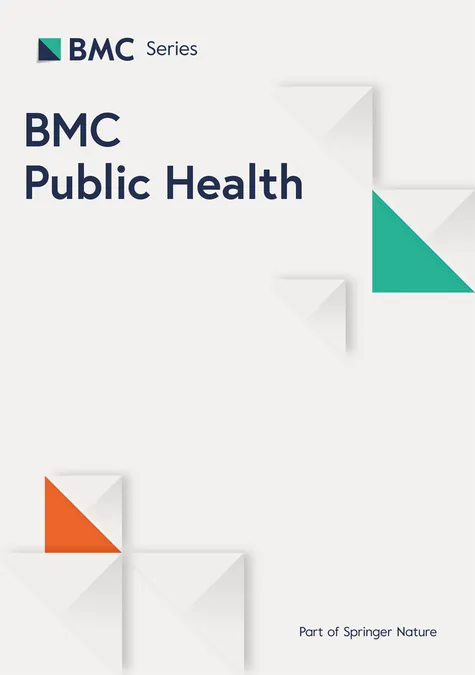
Shingles Vaccine Significantly Cuts Dementia Risk, Groundbreaking Study Reveals!
2025-04-02
Author: Mei
Recent Research Findings
Recent research has unveiled significant insights into the relationship between shingles vaccination and dementia risk, providing compelling evidence that the shingles vaccine can help protect against this debilitating brain disease. This study tracked the health records of over 280,000 older adults in Wales and revealed that individuals who received the shingles vaccine known as Zostavax were 20% less likely to develop dementia over a seven-year period compared to those who did not receive the vaccine.
Expert Insights
Pascal Geldsetzer from Stanford University emphasizes the importance of these findings, stating, "For the first time we can confidently assert that the shingles vaccine contributes to a reduced risk of dementia. If this causal effect holds true, it represents a groundbreaking development for public health."
Methodology of the Study
The research capitalized on a unique vaccination rollout in Wales, which took place over a decade ago. Specific public health policies established that individuals born on or after September 2, 1933, were eligible for the Zostavax vaccine effective September 1, 2013, while older adults were not. This created an ideal scenario for study, allowing researchers to compare dementia rates among older adults who were born just weeks apart but had different vaccine eligibility.
Gender Differences in Efficacy
After controlling for various factors, investigators noted that the protective benefits of the vaccine against dementia were particularly pronounced in women. Anupam Jena, a professor at Harvard Medical School, remarked on the profound implications of these findings, especially as dementia affects over 55 million people worldwide and remains the leading cause of death in the UK, with one in three adults expected to develop the condition at some point in their lives.
Current Treatment and Research
Dementia currently has no cure, although recent advancements in medications have aimed at slowing its progression. During childhood, individuals who have chickenpox carry the virus dormant in their nerve cells, and it can reactivate as shingles in older individuals or those with weakened immune systems.
Previous Studies and Future Research
This current research, published in the prestigious journal *Nature*, is not the first indication that shingles vaccines could provide a protective effect against dementia. Previous studies conducted during the rollout of Zostavax in the US in 2006 and research from Oxford University have hinted at reduced dementia rates among vaccinated individuals. Moreover, findings suggest even stronger protective effects from Shingrix, a newer shingles vaccine. Geldsetzer is actively seeking funding for randomized clinical trials to validate these findings.
Possible Mechanisms of Protection
While the precise mechanisms through which shingles vaccines may guard against dementia remain under investigation, experts propose several theories. One hypothesis suggests that the vaccine lowers inflammation in the nervous system by preventing the virus's reactivation. Another suggests it fosters broader immunological responses that protect brain health, potentially explaining observed gender differences in vaccine efficacy.
Reactions from Experts
Julia Dudley, Head of Research at Alzheimer’s Research UK, commented, "While past studies indicated an association, this research presents stronger evidence of a direct link between shingles vaccination and reduced dementia risk, especially notable in women." She highlighted the potential benefits of these findings in uncovering new pathways for dementia prevention and treatment.
Implications for Public Health
Maxime Taquet, whose investigations indicated a reduced dementia risk associated with the Shingrix vaccine, pointed out the possibility that the adjuvants in Shingrix enhance immune responses, which may provide greater protection. He stated, "Both studies offer robust support for the hypothesis that shingles vaccinations reduce the risk of dementia, with the newer recombinant vaccine potentially offering superior benefits."
Conclusion and Future Directions
The implications of these findings are astounding: they suggest that a simple vaccination could serve as a cost-effective intervention with significant public health benefits beyond its original purpose. As research progresses, it could pave the way for innovative strategies in dementia prevention, potentially changing the future landscape of this pressing public health issue.
Stay tuned for more updates on this critical research and how it could transform our understanding of dementia prevention strategies!





 Brasil (PT)
Brasil (PT)
 Canada (EN)
Canada (EN)
 Chile (ES)
Chile (ES)
 Česko (CS)
Česko (CS)
 대한민국 (KO)
대한민국 (KO)
 España (ES)
España (ES)
 France (FR)
France (FR)
 Hong Kong (EN)
Hong Kong (EN)
 Italia (IT)
Italia (IT)
 日本 (JA)
日本 (JA)
 Magyarország (HU)
Magyarország (HU)
 Norge (NO)
Norge (NO)
 Polska (PL)
Polska (PL)
 Schweiz (DE)
Schweiz (DE)
 Singapore (EN)
Singapore (EN)
 Sverige (SV)
Sverige (SV)
 Suomi (FI)
Suomi (FI)
 Türkiye (TR)
Türkiye (TR)
 الإمارات العربية المتحدة (AR)
الإمارات العربية المتحدة (AR)